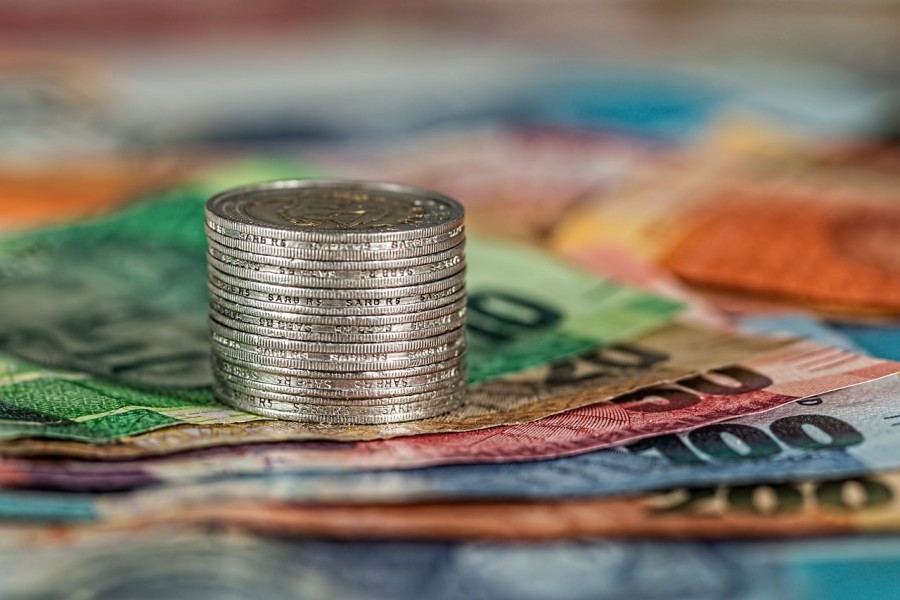Credit Cards offer us the convenience of cashless transactions, the ability to purchase now and pay later, and even rewards points. However, as we navigate this world of credit, we often come across complex terms, one of which is the ‘current outstanding’ on a credit card.
The ‘current outstanding meaning in credit card’ essentially refers to the total amount we owe the credit card company. This includes everything – our purchases, cash advances, balance transfers, fees, and the interest accumulated on these amounts. It’s the sum that appears on our monthly credit card statement, telling us how much we need to pay back.
Understanding this concept is vital for all of us as credit card users. It helps us to keep track of our spending, manage our payments, and maintain a healthy financial lifestyle. As we delve deeper into the world of credit cards, having a clear understanding of terms like ‘current outstanding’ will enable us to use our cards wisely and avoid potential pitfalls. Over the next few sections, we will unpack the ‘current outstanding meaning in credit card’ in more detail, helping us to better manage our credit card usage and finances.
Also Read: How much should you pay on your credit card?
Understanding the Meaning of Current Outstanding
When we delve into the ‘current outstanding meaning in credit card,’ we are referring to the total debt that we are currently obligated to pay to our credit card issuer. This amount can vary based on our credit card usage, our previous bill payments, and the various charges like interest, fees, and penalties that might be applicable on our credit card.
How Current Outstanding is Calculated
The calculation of the ‘current outstanding amount in credit card’ is fairly straightforward. It includes all our card transactions, such as purchases, cash advances, balance transfers, plus any charges or interest. Any payments or credits are then subtracted from this total. This calculation is typically done at the end of each billing cycle.
The Importance of Tracking Our Current Outstanding
Tracking our ‘credit card outstanding balance’ is a crucial part of managing our finances. It helps us understand our spending patterns, enables efficient budgeting, and keeps us aware of any potential issues such as over-limit fees or high-interest charges.
Impact of Current Outstanding on Credit Score
Our ‘credit card outstanding balance’ can significantly impact our credit score. If our outstanding amount is consistently high, it could indicate that we are overly reliant on credit, which can lower our credit score. Conversely, a lower outstanding balance showcases responsible credit usage, which can boost our credit score.
Tips to Manage Our Current Outstanding Effectively
Effectively managing our ‘current outstanding amount in credit card’ involves regular monitoring, timely payment of bills, and responsible credit use. We should aim to pay off our entire outstanding balance each month to avoid incurring interest and maintaining a healthy credit score.
Also Read: How To Get Credit Card With Low Cibil Score In India
Consequences of Not Paying Our Current Outstanding
Failure to pay our ‘current outstanding amount in credit card’ can have serious financial consequences. We may be charged late payment fees, our interest rates may increase, our credit score may drop, and in extreme cases, our account could be sent to collections.
How to Clear Our Current Outstanding Balance
To clear our ‘credit card outstanding balance,’ we can consider strategies like paying more than the minimum payment each month, paying off high-interest debt first, or using a balance transfer credit card. Seeking advice from a financial advisor can also be beneficial.
Conclusion: Responsible Credit Card Usage and Current Outstanding Management
In conclusion, understanding the ‘current outstanding meaning in credit card’ is key to managing our finances effectively. Regular tracking of our ‘current outstanding amount in credit card’ and timely payment of our ‘credit card outstanding balance’ can help maintain a good credit score. Let’s remember, that responsible credit card usage and efficient management of our current outstanding balance can lead us to financial stability and freedom.
FAQs:
What is the current outstanding balance on a credit card?
The current outstanding balance on a credit card refers to the total amount that you owe the credit card issuer. This includes all your purchases, cash advances, balance transfers, as well as any interest or fees that have been charged.
How is the current outstanding balance calculated?
The current outstanding balance is calculated by adding all your credit card transactions, such as purchases, cash advances, balance transfers, and any charges or interest. Any payments or credits are then subtracted from this total. This calculation is typically done at the end of each billing cycle.
Does the current outstanding balance affect my credit score?
Yes, your current outstanding balance can significantly impact your credit score. If your outstanding balance is consistently high, it could indicate that you are overly reliant on credit, which can lower your credit score. Conversely, maintaining a lower outstanding balance can help boost your credit score.
What happens if I don’t pay my current outstanding balance?
If you don’t pay your current outstanding balance, you may be charged late payment fees, your interest rates may increase, and your credit score may drop. In extreme cases, your account could be sent to collections.
What are some strategies to clear my current outstanding balance?
Some strategies to clear your current outstanding balance include paying more than the minimum payment each month, paying off high-interest debt first, and using a balance transfer credit card to consolidate your debts. It can also be beneficial to seek advice from a financial advisor.


 Get App
Get App  Airtel Store
Airtel Store  Login
Login 



